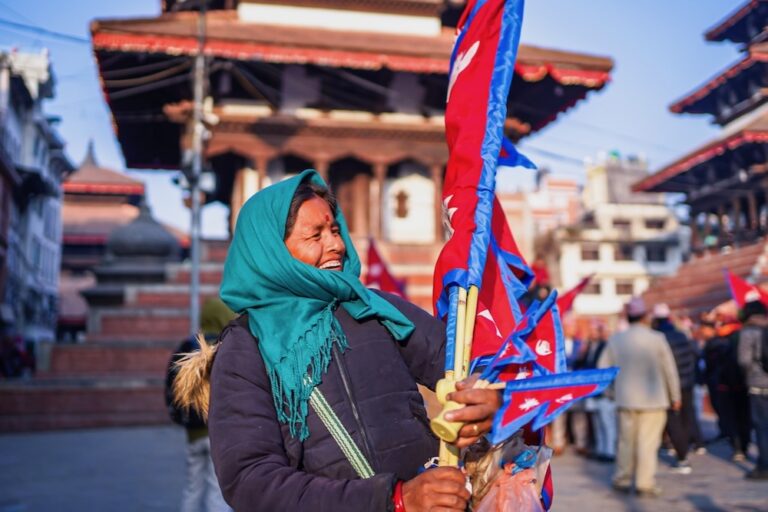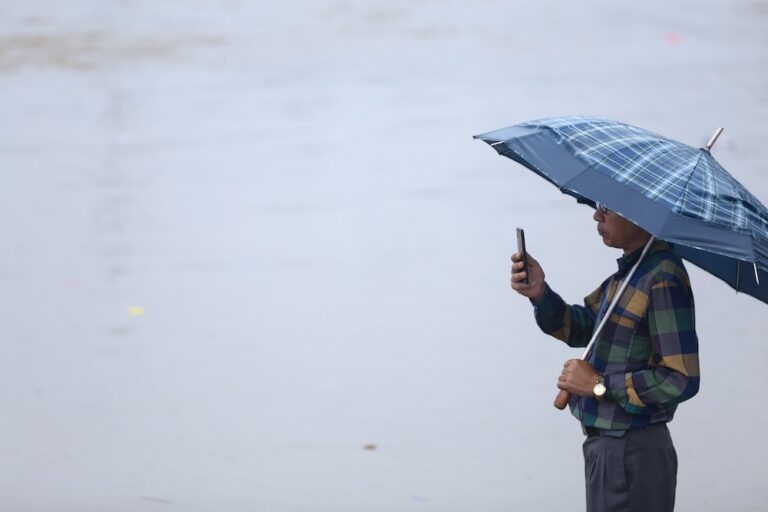(RSF/IFEX) – RSF has condemned a series of recent measures by King Gyanendra’s government that discriminate against the independent press, especially new directives determining how state advertising will be allocated to the media. “Nepal’s independent media have in turn been the victims of threats, discrimination and repression, but they have continued to resist all of […]
(RSF/IFEX) – RSF has condemned a series of recent measures by King Gyanendra’s government that discriminate against the independent press, especially new directives determining how state advertising will be allocated to the media.
“Nepal’s independent media have in turn been the victims of threats, discrimination and repression, but they have continued to resist all of the government’s arbitrary actions,” the organisation said.
“King Gyanendra is trying to realise his dream of doing away with Nepal’s vibrant independent press, which has been rejecting his dictates ever since his 1 February crackdown,” RSF added, while appealing to the international community to step up support for the independent media “in order to save one of the kingdom’s last surviving democratic gains.”
On 26 September 2005, the Information and Communications Ministry issued a set of directives on state advertising, known as the “One Door Advertisement Policy,” in which the government asked all state entities to advertise only with media outlets that “respect the nation, the nationality and the monarchy.”
An annual report issued by the Press Council on 22 September contained a ranking of 455 publications in which several that are critical of the government, including the magazines “Chhalphal”, “Ghatana Ra Bichar” and “Haank”, were demoted from category A to category B despite their sizable circulation.
Reacting to the new ranking, newspaper and magazine editors staged a protest on 24 September at the office of Mathabar Singh Basnet, the Press Council’s chairperson, preventing anyone from entering. They said the ranking was unfair and biased, pointing out that publications supportive of the king, such as the weeklies “Rahashya” and “Janabhavana”, had been promoted to category A. The weekly “Punarjagaran”, which the Press Council’s chairperson used to edit, is also now in category A. As a result, royalist publications will now have privileged access to state funds.
Meanwhile, the “Kantipur” press group has been the target of a campaign of intimidation by royalist forces for its criticism of the current government. A royalist official in the eastern city of Biratnagar threatened to attack “Kantipur”‘s offices during a meeting on 18 September. An extremist Hindu group made similar threats a few days earlier. An army officer promised to break the legs of a “Kantipur” correspondent on 14 September after she wrote an article about violence against civilians. Leading “Kantipur” columnist Krishna Jwala Devkota received many phone calls and e-mails in August ordering him to stop criticising the security forces (see IFEX alert of 22 August 2005).
Several senior officials have also made threatening and ridiculous comments about journalists who have “sold out to the foreigners.” On 22 September, the Press Council’s chairperson accused the Nepalese media of “dancing to the rhythm of the foreigners,” while the information minister said the press should work for the country and the king and not for foreign embassies.
“If the international community supports Nepalese journalists and press organisations, it is to express its solidarity with a profession that is the victim of a repressive government,” responded RSF, which has provided financial support to imprisoned or threatened journalists.


